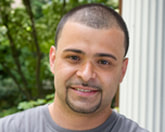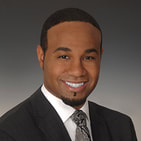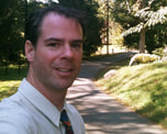About Us
Founded in 2012, TTEF connects incarcerated and formerly incarcerated people pursuing a higher education with targeted resources, with an emphasis on a liberal arts education. Democratizing access to higher education is a powerful and effective way to support rehabilitation and reentry. TTEF aims to reverse the school-to-prison pipeline by:
- Conducting in-prison workshops about applying to college and for financial aid with a criminal record.
- Awarding annual scholarships of up to $1,000 to those who have been accepted to post-secondary institutions
- Providing awardees with personal mentors who have traveled a similar path.
- Partnering with the the Rhode Island Department of Corrections (RIDOC) and Community College of Rhode Island (CCRI) to offer college credit courses at the Maximum Security Facility in Rhode Island. These courses count as credit towards an associate’s degree.

Andres Idarraga, President
Andres Idarraga believes education can transform lives and circumstances. He was raised in the Pawtucket and Central Falls areas of Rhode Island and was incarcerated as a young man. In prison, Mr. Idarraga tutored other inmates pursing their G.E.D. while taking classes from the New England Institute of Technology and the Community College of Rhode Island. After his incarceration, he pursued his education at the University of Rhode Island, Brown University, and Yale University. He has volunteered with the National Urban Debate League and founded a program while at Yale Law School that sends law students into local high schools to teach a full year of Constitutional Law. During law school, he was selected as a Paul and Daisy Soros New American Fellow. Mr. Idarraga is committed to helping others chart their own path to higher education during and after periods of incarceration.
Andres Idarraga believes education can transform lives and circumstances. He was raised in the Pawtucket and Central Falls areas of Rhode Island and was incarcerated as a young man. In prison, Mr. Idarraga tutored other inmates pursing their G.E.D. while taking classes from the New England Institute of Technology and the Community College of Rhode Island. After his incarceration, he pursued his education at the University of Rhode Island, Brown University, and Yale University. He has volunteered with the National Urban Debate League and founded a program while at Yale Law School that sends law students into local high schools to teach a full year of Constitutional Law. During law school, he was selected as a Paul and Daisy Soros New American Fellow. Mr. Idarraga is committed to helping others chart their own path to higher education during and after periods of incarceration.

Noah Kilroy, Secretary
Noah Kilroy struggled with his identity as a youth. This struggle led to Mr. Kilroy making bad choices, including dropping out of school. He was ultimately incarcerated for drug-dealing offenses. While in prison, Mr. Kilroy learned the importance of education, more specifically, knowledge of one's self. By identifying the root of the maladaptive behavior that led him to jail, Mr. Kilroy was able to gain the confidence to transcend his circumstances through formal education. After obtaining his G.E.D. in prison, Mr. Kilroy went on to attend the Community College of Rhode Island, Salve Regina University, University of Detroit-Mercy School of Law, and earn his law degree from Roger Williams School of Law. At Detriot-Mercy, he founded a debate club for Detroit city youth. Today, Mr.Kilroy is a practicing attorney in Rhode Island and Massachusetts.
Noah Kilroy struggled with his identity as a youth. This struggle led to Mr. Kilroy making bad choices, including dropping out of school. He was ultimately incarcerated for drug-dealing offenses. While in prison, Mr. Kilroy learned the importance of education, more specifically, knowledge of one's self. By identifying the root of the maladaptive behavior that led him to jail, Mr. Kilroy was able to gain the confidence to transcend his circumstances through formal education. After obtaining his G.E.D. in prison, Mr. Kilroy went on to attend the Community College of Rhode Island, Salve Regina University, University of Detroit-Mercy School of Law, and earn his law degree from Roger Williams School of Law. At Detriot-Mercy, he founded a debate club for Detroit city youth. Today, Mr.Kilroy is a practicing attorney in Rhode Island and Massachusetts.

Bruce Reilly, Treasurer
Bruce Reilly is a graduate of Tulane Law School, a writer, and a founding member of the Formerly Incarcerated, Convicted People and Families Movement (FICPFM). Bruce provides expert analysis on discrimination in employment, housing, and voting rights. He served as a jailhouse lawyer (1993-2005) before his release, and a 2-hour bus ride to a minimum wage job. Bruce put his knowledge to work by joining Direct Action for Rights & Equality (DARE) in Rhode Island, from 2005-2012, and played a vital role in passing significant criminal justice reforms, such as the restoration of voting rights, eliminating mandatory minimums, statewide Ban the Box, the Good Samaritan Overdose Prevention Act, unshackling pregnant prisoners, and probation violation reform. In 2011, Bruce moved to New Orleans to attend law school, joined VOTE, and replicated a similar role in policy reform and movement building in Louisiana. Bruce co-founded Transcending Through Education Foundation (TTEF) with two other formerly incarcerated friends who also entered prison at a young age, and earned law degrees after being released. He is also the author of "Communities, Evictions, and Criminal Convictions," a foundational report on public housing. Bruce serves on the board of All Square, a reentry/restaurant program in Minneapolis; the National Clean Slate Clearinghouse Advisory Committee; the IRB for American Institutes of Research; and advisory board of Prison Policy Initiative. Bruce has also worked as an artist, lighting designer, DJ, and theater director.
Bruce Reilly is a graduate of Tulane Law School, a writer, and a founding member of the Formerly Incarcerated, Convicted People and Families Movement (FICPFM). Bruce provides expert analysis on discrimination in employment, housing, and voting rights. He served as a jailhouse lawyer (1993-2005) before his release, and a 2-hour bus ride to a minimum wage job. Bruce put his knowledge to work by joining Direct Action for Rights & Equality (DARE) in Rhode Island, from 2005-2012, and played a vital role in passing significant criminal justice reforms, such as the restoration of voting rights, eliminating mandatory minimums, statewide Ban the Box, the Good Samaritan Overdose Prevention Act, unshackling pregnant prisoners, and probation violation reform. In 2011, Bruce moved to New Orleans to attend law school, joined VOTE, and replicated a similar role in policy reform and movement building in Louisiana. Bruce co-founded Transcending Through Education Foundation (TTEF) with two other formerly incarcerated friends who also entered prison at a young age, and earned law degrees after being released. He is also the author of "Communities, Evictions, and Criminal Convictions," a foundational report on public housing. Bruce serves on the board of All Square, a reentry/restaurant program in Minneapolis; the National Clean Slate Clearinghouse Advisory Committee; the IRB for American Institutes of Research; and advisory board of Prison Policy Initiative. Bruce has also worked as an artist, lighting designer, DJ, and theater director.
